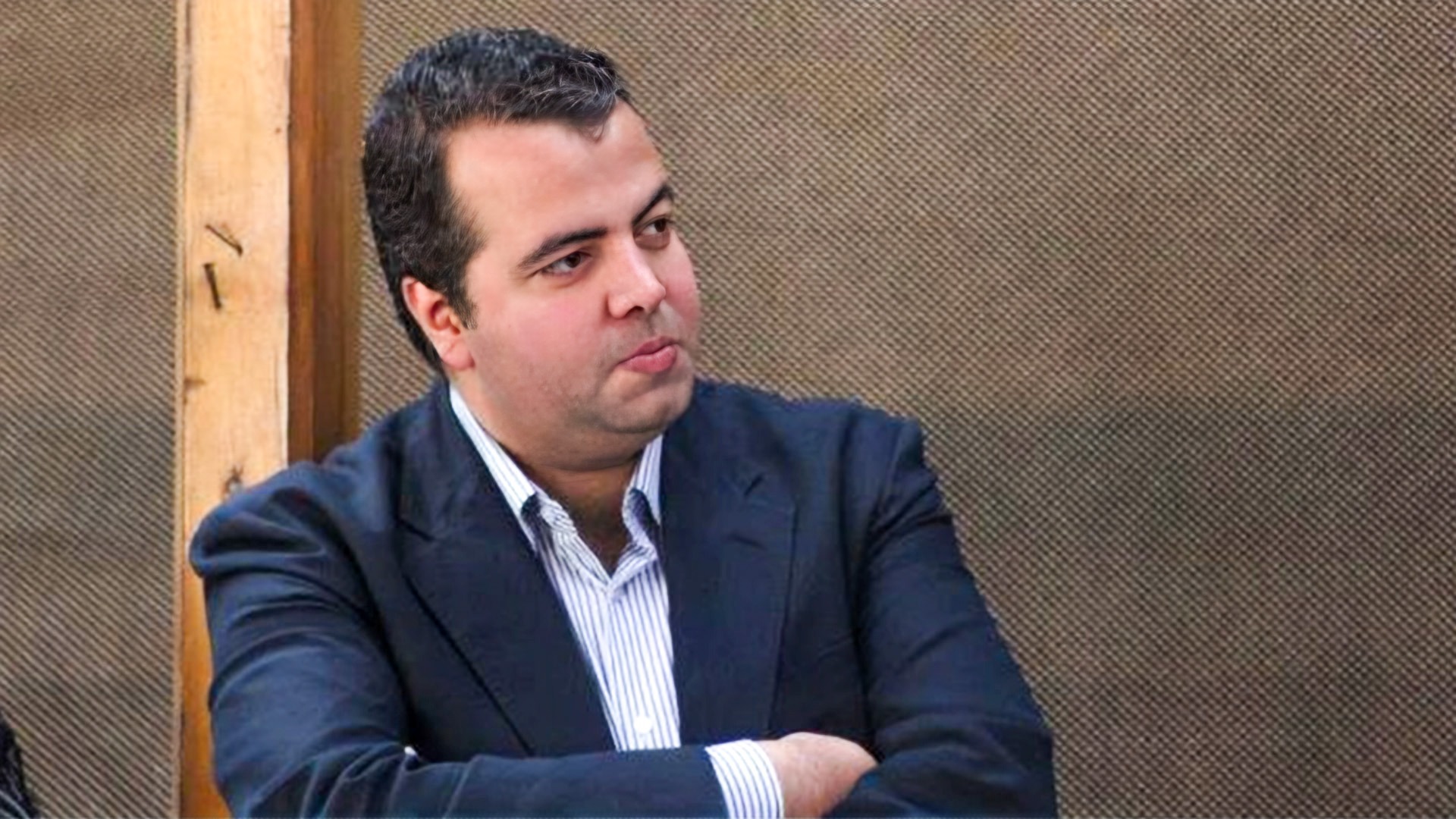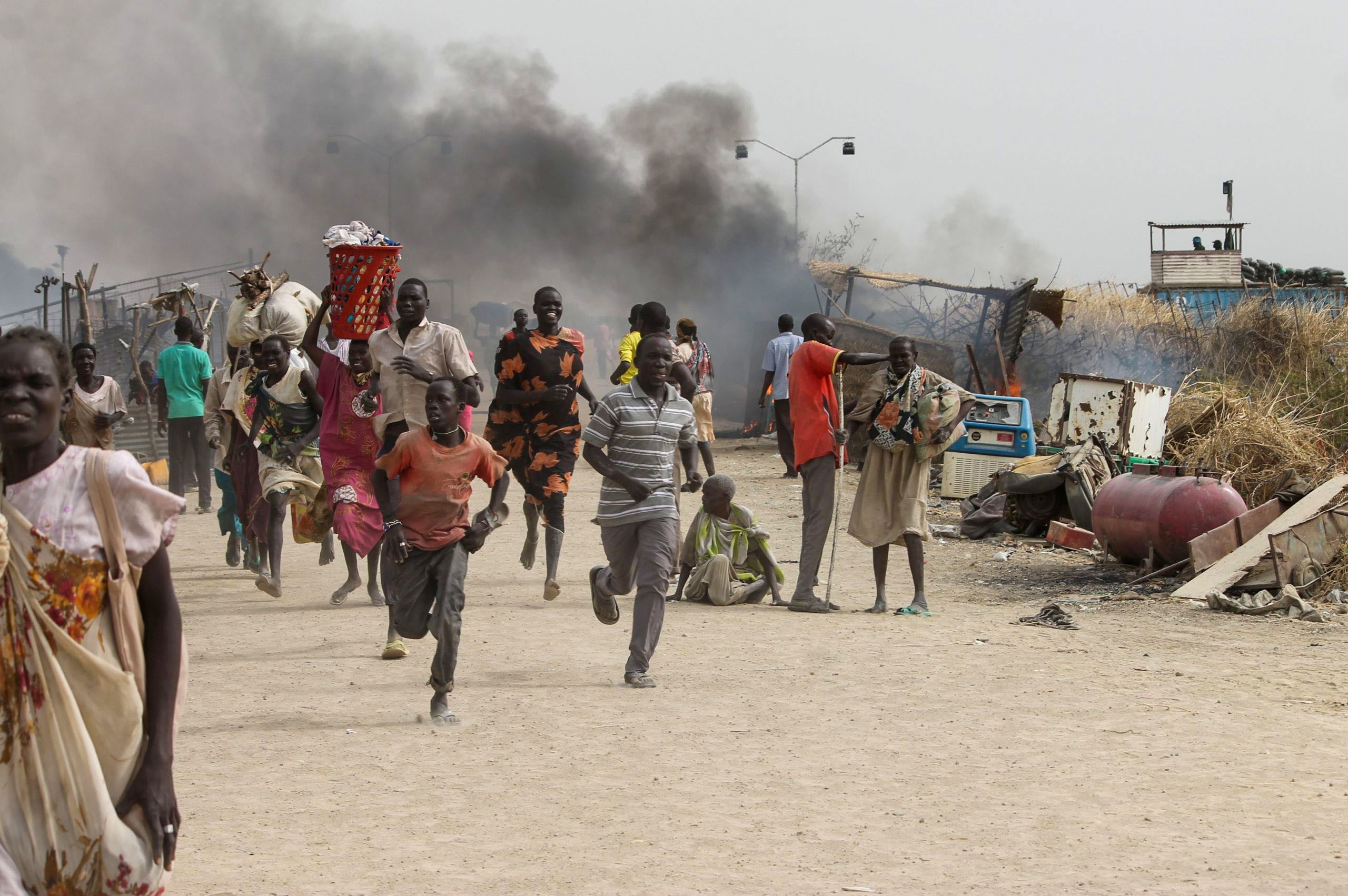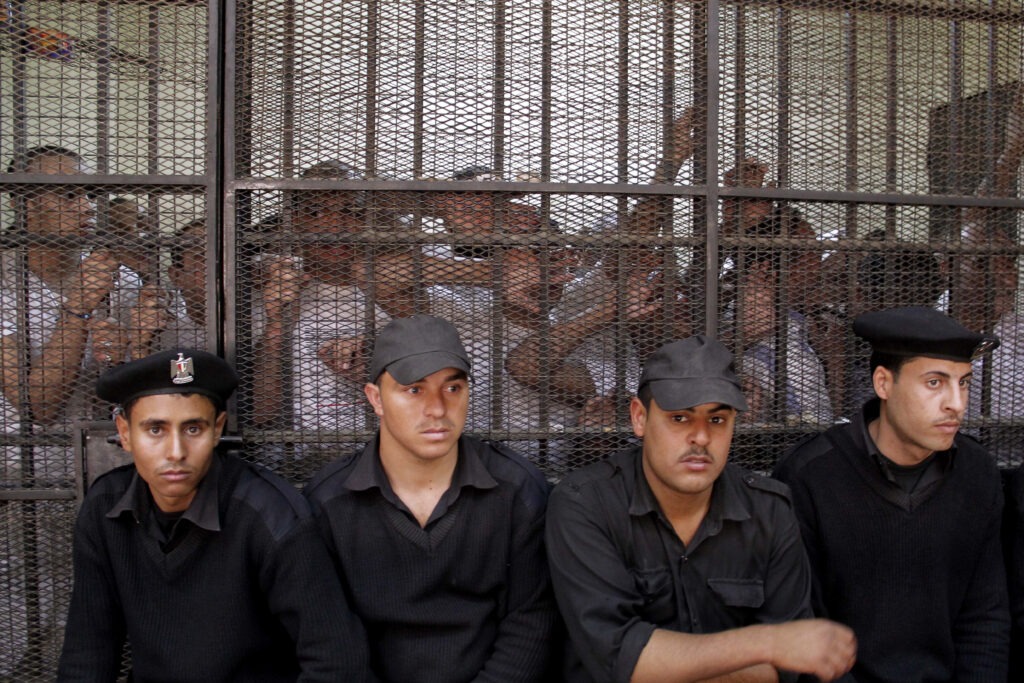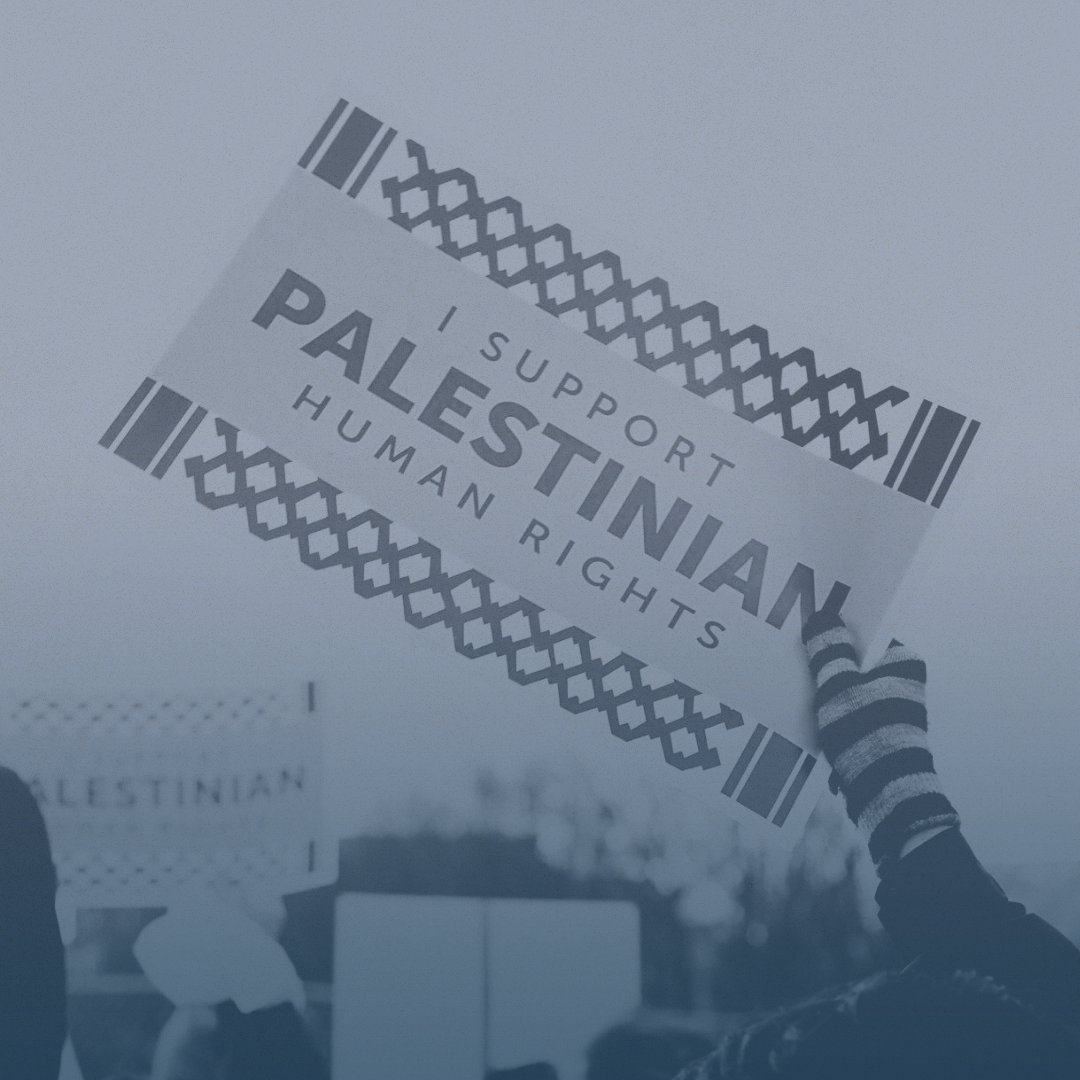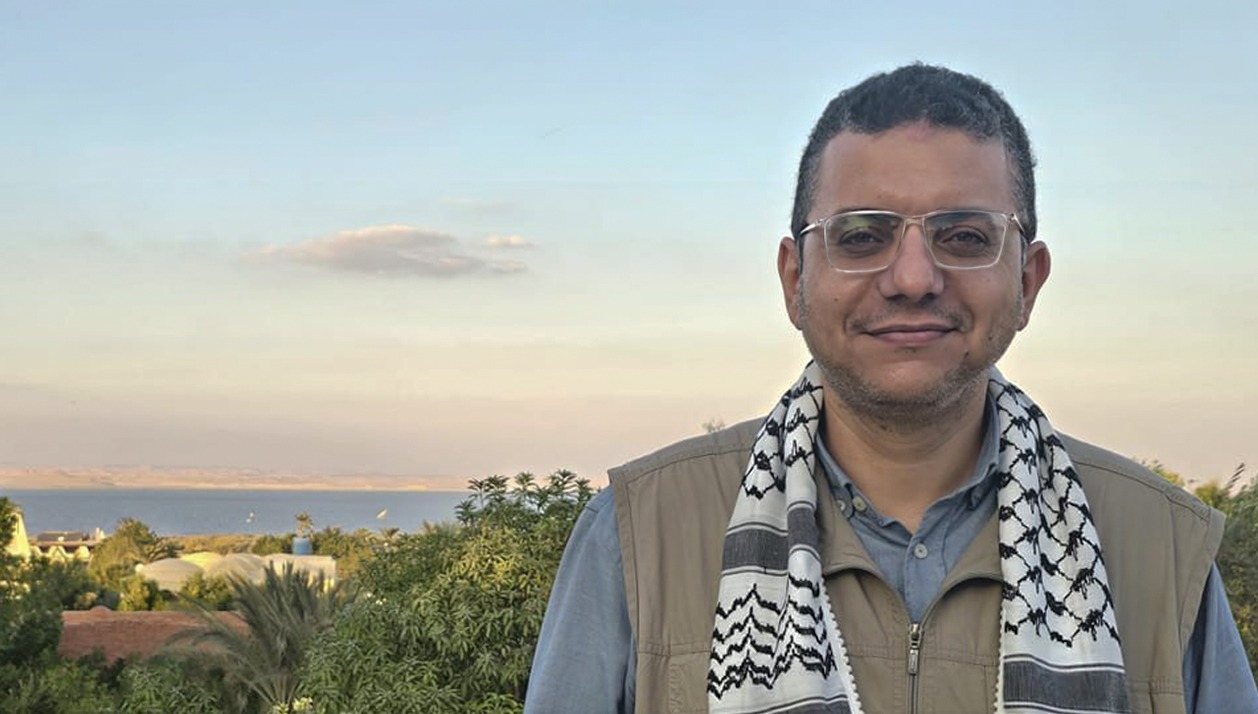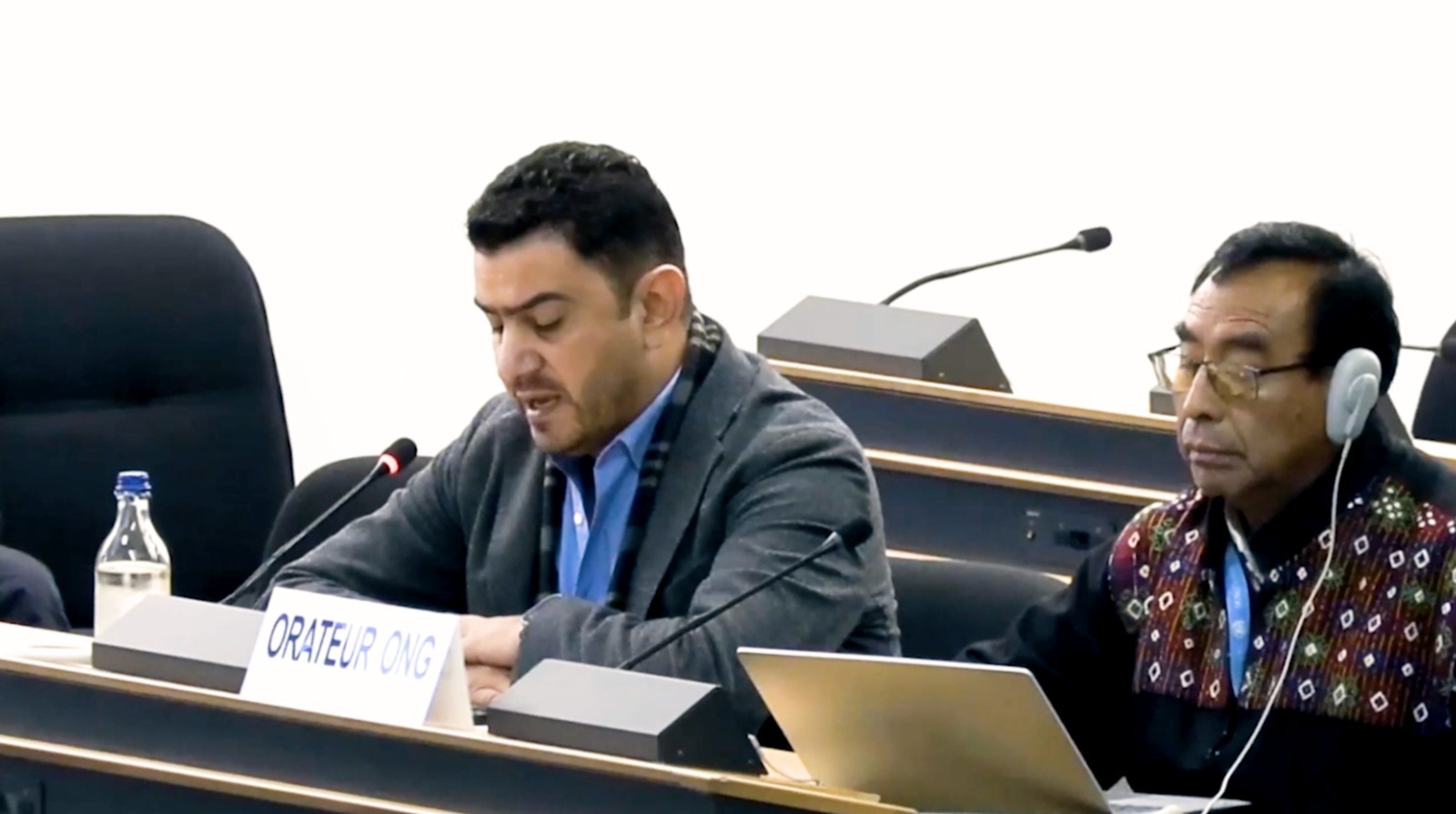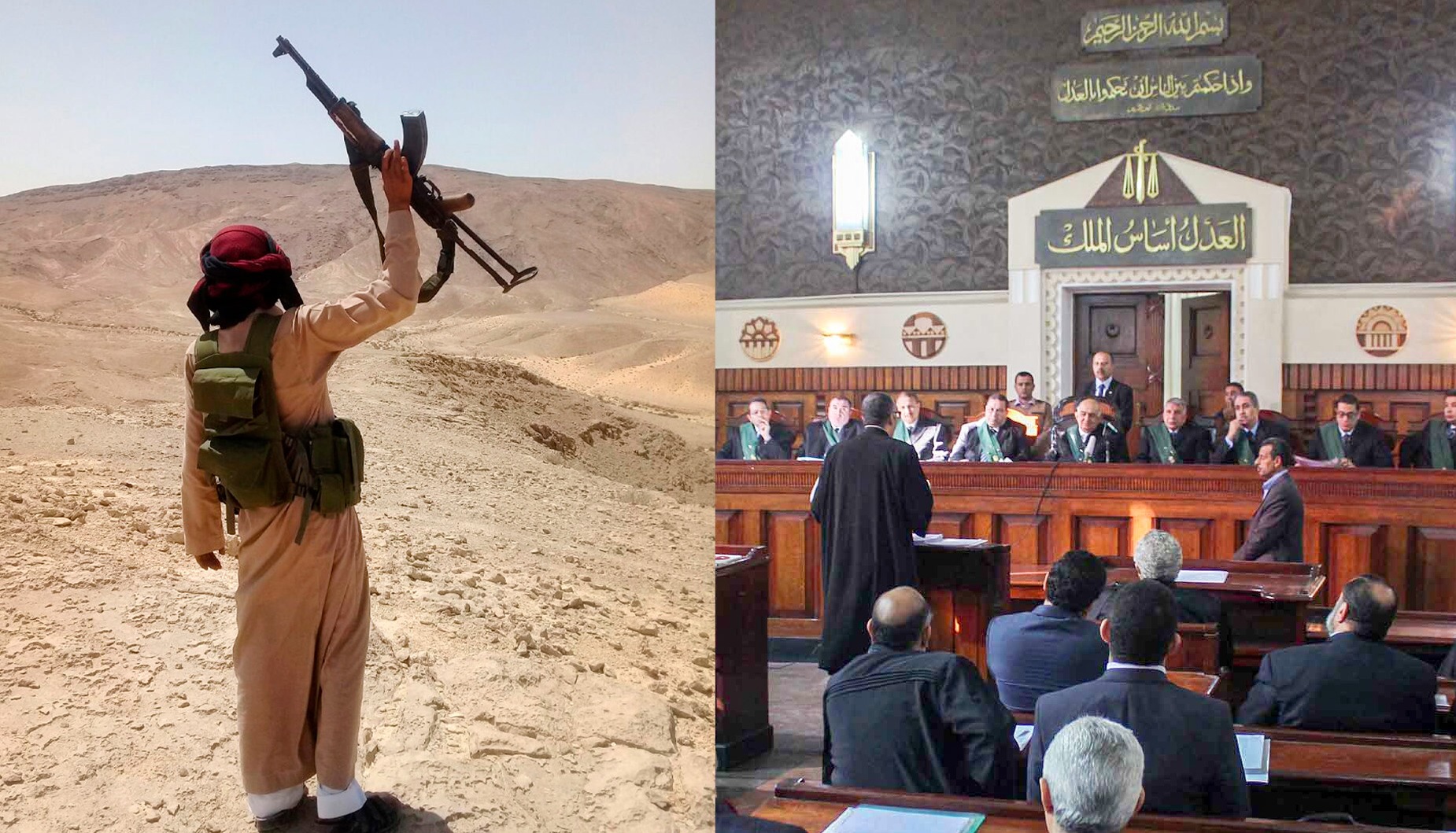
The most notable abuses that took place during December 2021
Summary:
The Sinai Foundation for Human Rights documented 6 abuses during December 2021, 3 of which were committed by each of the conflicting parties.
The foundation’s legal team documented several abuses during this month including trials that could be described as lacking the standards of fair trial where defendants were brought before the prosecution after varying periods of enforced disappearance and others were recycled into new cases and charged with joining a terrorist group, according to National Security investigations, despite their previous release orders or finishing their sentences in previous cases where they faced the same charges.
On the other hand, the ISIS-affiliate group, Sinai Province, targeted two civilians they claimed to have cooperated with security forces or worked in economic projects related to the military. In addition, a child and a woman were injured this month by the explosion of an explosive device in Sheikh Zuwayed, most likely planted by ISIS members to target government forces.
Details of the abuses
Egyptian law enforcement forces abuses:
Forcibly disappeared individuals appearing in court as defendants
The Sinai Foundation for Human Rights followed trials of North Sinai civilians that lack the standards of fair trial, where the State Supreme Security Prosecution in Cairo and the Ismailia Military Prosecution proceeded with investigating them during December 2021 and charged them with joining a terrorist group, based on National Security and military intelligence investigations.
The first incident was documented by the Foundation’s legal team on 2 December 2021 where the defendant “Hatim Mohamed Ahmed Rashid”, 45, appeared before the State Supreme Security Prosecution in Cairo after two periods of enforced disappearance only to be recycled back in relation to a new case numbered 2467 for the year 2021 and charged with joining a terrorist group after the prosecution ordered his release for exceeding the maximum period of preventive detention.
Hatim’s journey started on 17 January 2017 when he was arrested alongside 5 members of the Muslim Brotherhood by security forces at a residential apartment in Cairo. Hatim works as a doctor, and he was also a consultant to the Minister of Supply during President Mohamed Morsi’s presidency. Two days after his arrest he was brought before the public prosecution on 19 January 2017 in relation to case 145 for the year 2017. He remained under preventive detention for two years until the public prosecution ordered his release on 17 March 2019. However, the security services refrained from executing his release order and subjected him to 4 months of enforced disappearance in the National Security base in Ismailia until he was once more brought before the public prosecution on 17 July 2019 for him to be recycled into case number 800 for the year 2019 for which the police wrote an official warrant for his arrest with a recent date.
Hatim remained under preventive detention for two more years in relation to case number 800 for the year 2019 before the public prosecution ordered his release on 5 October 2021. He was then transferred to al-Qantara Gharb (west) police station in preparation for his release but the security services refrained from executing the release order and he was subjected once more to two months of enforced disappearance where he was detained at the al-Qantara Gharb police station until he was transferred to the National Security base in Ismailia on 2 November 2021 where he remained incarcerated until he was brought before the State Supreme Security Prosecution in Cairo on 2 December 2021 to be recycled for the second time in relation to a new case numbered 2467 for the year 2021.
The prosecution confronted the defendant with physical evidence which is flyers and leaflets the police stated in its official arrest warrant were found on him. The defendant absolutely denied these accusations and stressed on the impossibility of the legitimacy of this evidence for he had not been released since 2017, which he demanded the prosecution checks.
The second incident was documented by the foundation’s legal team on 23 December 2021 when the defendant “Khalid Fahmy Muhsin Muhesin al-Saiah”, 26, appeared before the State Supreme Security Prosecution in Cairo in relation to case number 1935 for the year 2021 after an enforced disappearance period of 32 days. He was charged with joining a terrorist group, and the prosecution later decided on 26 December 2021 to renew his detention for 15 days.
During the investigations, the defendant denied the charges and told the prosecution: “I was arrested not far from Abu-Suwir in Ismailia. I go there to visit my sister. On 20 November 2021 at 8 PM, I was buying a phone for a friend and suddenly people from National Security showed up, arrested me, and took my phone and took me to the Abu-Suwir police station and interrogated me while I was blindfolded. I remained at the station till 22 December and was then transported to National Security in Ismailia and I remained there till they brought me here before you.”
The third incident was documented by the foundation’s legal team on 16 December 2021 when the defendant “Faris Eid Mousa”, 24, appeared before the State Supreme Security Prosecution in Cairo after almost 5 months of enforced disappearance in relation to case number 1935 for the year 2021. The prosecution accused the defendant during investigations of joining a terrorist group based on National Security investigations.
The defendant stated before the prosecution during the interrogation: “I didn’t do anything. I was arrested on 5 September 2021 on the street in Ismailia because my place of residence on my ID is North Sinai. They told me then that they would investigate me and release me if they found nothing. Ever since then I had been at National Security in Ismailia until I was brought before you. I have nothing to do with terrorists, sir. I swear that my family and I work with security forces. I’m an informant”.
Looking at what the defendants stated during the interrogations, there is no doubt that many infractions and violations considered crimes in the eyes of the Egyptian law took place, in addition to the prosecution’s violation of the simplest rules and procedural guarantees stated by the Egyptian law especially in the case of initial investigations.
First: The detainment of arrested individuals without permission from the relevant judicial authorities for longer than the legal detainment period.
Article 54 of the Egyptian constitution states that: “Personal freedom is a natural right which is safeguarded and cannot be infringed upon. Except in cases of in flagrante delicto, citizens may only be apprehended, searched, arrested, or have their freedoms restricted by a causal judicial warrant necessitated by an investigation. All those whose freedoms have been restricted shall be immediately informed of the causes therefor, notified of their rights in writing, be allowed to immediately contact their family and lawyer, and be brought before the investigating authority within twenty-four hours of their freedoms having been restricted…”.
Article 36 of the Code of Criminal Procedure states that: “The criminal investigation officer shall immediately hear the statements of the arrested suspect who, if he fails to establish his innocence, shall be brought before the office of the competent public prosecutor within 24 hours. The office of the public prosecutor shall question him within 24 hours, after which it shall order either his remand in custody or his release”.
Article 40 of the same code states that: “No one shall be arrested or detained except by order of the legally competent authorities. Any person who is arrested or detained shall be treated in a manner conducive to the preservation of his human dignity and shall not be subjected to physical or mental harm”.
Second: The centers where they were detained were as they stated during investigations inhumane, and they were subjected to emotional and physical stress there. In addition, the centers are not supervised by the public prosecution and are not specified in the Prison Regulation Law or its amendments.
Second: The detainment of arrested individuals in unofficial detention centers which fall under no judicial supervision.
Article 41 of the Egyptian Code of Criminal Procedure states that: “No person shall be detained except in designated prisons. No warden shall accept any person without an order signed by the designated authority which is the general prosecution, and they are not to be detained beyond the time period specified in the order.”
Article 42 of the same code states that: “Members of the Department of Public Prosecutions and presidents and vice-presidents of courts of first instance shall be empowered to inspect the public and central prisons situated within their areas of jurisdiction in order to ascertain that no one is being detained unlawfully. They shall have the right to examine prison records and arrest and detention orders, take copies thereof, contact any detainee and hear any complaint that he might wish to submit to them. The prison governors and staff shall provide them with any assistance needed to obtain the information that they request”
Article 1 bis of the Prisons Regulation Act No. 396 of 1956 states that: “Any person who is detained, arrested, taken into custody or deprived of his freedom in any other way shall be committed to one of the prisons indicated in the previous article or in one of the places specified by a decision of the Minister of Interior and in respect of which all the provisions of the law apply, provided that the right to their access as stipulated in Article 85 shall be accorded to the Public Prosecutor or the person he deputizes from among the staff of the Public Prosecution with a rank not below that of Chief Prosecutor.”
Third: Keeping individuals detained after their release was ordered and charging them in new cases whose subject matter was the same as the ones where their release was ordered.
Several defendants were interrogated at the same State Supreme Security Prosecution which ordered their release. The release orders, however, were not executed, taking into consideration that the new cases in which they were recycled revolve around the same matter as the previous ones where their release was ordered. In other words, the charges in cases where their release was ordered are the same charges they face in the new cases, rendering the pre-trial detention and the cause for its execution useless and making this situation a case of extrajudicial detention covered under a blanket of legality by new warrants – which the defendants’ attorneys insisted were fake before the prosecution – because the defendants never left the detention centers and the prosecution’s orders of their release were never really executed.
It is worth mentioning that investigation authorities purposefully overlooked all these apparent legal violations and did not uphold their role to prosecute those who detained these civilians, as well as neglecting to summon the security forces that accompanied the defendants to corroborate their statements on being brought from unofficial detention centers where they were mentally and physically abused.
The prosecution also ignored the defendants’ statements during their investigations regarding their previous detention based on the same charges and did not fact-check said statements by reviewing the files for previous cases where their release was ordered and checking the presented evidence to accurately and objectively look into the defendants’ situations. What happens instead is that the prosecution does not do its part in pursuing justice and fairness for the defendants it is presented with, instead hastily ordering their imprisonment without real and objective interrogations which violates the bases of proper criminal investigation and the rights and guarantees provided to defendants by legislations during initial investigations and preventative detention.
Fourth: The prosecution deliberately prevents the defendants’ attorneys from accessing investigation reports and the evidence the prosecution uses as a basis for detaining the defendants so the attorneys could refute or comment on them during their defense.
Article 125 of the Code of Criminal Procedure states that: “The lawyer shall be given permission to examine the case file on the day prior to the interrogation or the confrontation unless the judge decides otherwise. In no case may the accused persons be separated from their lawyer who shall be present during the questioning.”
What was previously presented shows that the interrogating authorities illegally dealt with the defendants and ignored their statements during the interrogations on their unlawful detention for varying and long periods of time. It also shows how they dealt with what the defendants faced during these periods of abuse and violation of the Egyptian Constitution, the Code of Criminal Justice, and the safeguards for initial investigations.
ISIS-affiliate group, Sinai Province, abuses
1- Extrajudicial murder
The murder of a civilian contractor in Rafah
The Sinai Foundation for Human Rights foundation team documented on 2 December 2021 the abduction of “Saad Mohamed Saad Ghaith”, member of al-Fawakhria tribe in al-Arish who worked as a contractor in an Egyptian military public construction company in Rafah which suspended its work after its crew was recently subjected to several armed attacked by ISIS members.
The foundation team spoke with a relative of Saad’s who told us: “Saad was a very peaceful young man whose only crime was working to secure a living. The construction company he worked for worked on a project belonging to the Armed Forces Engineering Authority in Rafah. On the day Saad was abducted, he was in a car belonging to a civilian called “Khalil Ghanim” and in the car was also an engineer officer who supervises the project and soldiers. What we later learned was that the armed militants stopped them north of Rafah and abducted them after they shot at the car because we found five bullet holes in the car’s body. On Friday 3 December 2021, residents and the military found Saad’s body on the side of a new road to the south of Rafah”.
The murder of a child by armed militants’ gunfire in Central Sinai
The Sinai Foundation for Human Rights team documented on 31 December 2021 the arrival of the body of the child “Mohamed Gumaa Salim”, 17, from al-Qasima village, at the al-Arish general hospital as a result of gunshots by armed militants that penetrated the left side of his body and exited through the right side of his back. Eyewitnesses from al-Qasima stated that ISIS armed militants killed Mohamed after accusing him of cooperating with the military because he transported food supplies to some military camps in Central Sinai.
It is worth mentioning that the Sinai Foundation for Human Rights had documented during 2021 multiple civilian abductions and murders by ISIS who claimed that the civilians offered services to the military as the group’s militants consider any service for or help of security services to be hostile actions against the group. Such services include working on military construction projects or at military factories, as well as transporting supplies or fuel to military members in military ambushes in some volatile regions. For example, the foundation documented during June 2021 the murder of four civilians and the injury of two others, as well as the abduction of five civilians working on a project in southwest Bir al-Abd.
The International Humanitarian Law dedicates protection to civilians from being targeted during conflicts, as the Geneva conventions concerned with armed conflict stressed in common article 3 on the prohibition of “violence to life and person, in particular murder of all kinds” of civilians and those unable to fight, as well as dedicating special protection to minorities. Extrajudicial murder is a gross violation of human rights that is recurring in Sinai, and it is an inherent practice by ISIS. Arbitrary deprivation of the right to life is a violation of article 6 of The International Covenant on Civil and Political Rights. The African Charter on Human Rights also states in article 4 that civilians’ right to life is to be safeguarded at all times, including during conflict, while the African Commission on Human Rights considered it to be a pillar of all rights that is non-derogable.
2- Random indiscriminate attacks injure a child in Sheikh Zuwayed
The International Humanitarian Law obligates all parties of an armed conflict to differentiate between civilians and combatants during any conflict. This principle which was emphasized by article 48 of the additional protocol (I) to the Geneva Conventions, 1977 applies to all parties in an armed conflict and stays in effect no matter the type of conflict or the parties involved. Article 51 of the same protocol also prohibits random indiscriminate attacks, which are those that employ a method or means of combat whose effects cannot be contained in the way appointed by the law and therefore could hit, in such a case, military targets and civilians with no distinction. Despite that, the Sinai Foundation for Human Rights team documented on 7 December 2021 the injury of the child “Hala Suliman Mohamed Hammad”, 8, inhabitant of “al-Qalawza” neighborhood in Sheikh Zuwayed. Eyewitnesses interviewed by the foundation stated that the child was transported to the Sheikh Zuwayed general hospital after being injured by shrapnel from an anti-personnel explosive device most likely planted in the neighborhood by ISIS members to target government forces.
Medical sources told the foundation team that the child was injured by shrapnel in multiple spots in her body causing lacerations to the left thigh, right knee, chest, and stomach. The foundation acquired an exclusive photograph of Hala’s medical report.
This incident is considered the second incident of the same nature affecting civilians returning to their homes in Sheikh Zuwayed villages after 7 years of displacement, as a woman was injured by the explosion of an explosive device in the vicinity of a house in al-Darawsha neighborhood in southern Sheikh Zuwayed.
It is worth mentioning that explosions resulting from explosive devices and foreign objects planted or left behind by the group in the streets and houses of villages whose inhabitants escaped is a common pattern systematically used by ISIS. Despite the fact ISIS planted said devices and bears the legal consequences of those attacks, the Egyptian authorities should totally protect and secure civilian lives after regaining control of those areas by inspecting and combing through the area before informing civilians they could return. The Sinai Foundation had documented multiple such incidents during the past months which led to the fall of several civilian victims.


